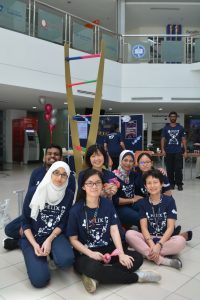[fusion_builder_container hundred_percent=”no” equal_height_columns=”no” menu_anchor=”” hide_on_mobile=”small-visibility,medium-visibility,large-visibility” class=”” id=”” background_color=”” background_image=”” background_position=”center center” background_repeat=”no-repeat” fade=”no” background_parallax=”none” parallax_speed=”0.3″ video_mp4=”” video_webm=”” video_ogv=”” video_url=”” video_aspect_ratio=”16:9″ video_loop=”yes” video_mute=”yes” overlay_color=”” overlay_opacity=”0.5″ video_preview_image=”” border_size=”” border_color=”” border_style=”solid” padding_top=”” padding_bottom=”” padding_left=”” padding_right=””][fusion_builder_row][fusion_builder_column type=”1_1″ layout=”1_1″ background_position=”left top” background_color=”” border_size=”” border_color=”” border_style=”solid” border_position=”all” spacing=”yes” background_image=”” background_repeat=”no-repeat” padding=”” margin_top=”0px” margin_bottom=”0px” class=”” id=”” animation_type=”” animation_speed=”0.3″ animation_direction=”left” hide_on_mobile=”small-visibility,medium-visibility,large-visibility” center_content=”no” last=”no” min_height=”” hover_type=”none” link=””][fusion_text] Since young I have always aspired to be a doctor. Helping people has always been a part of me. However, at some point in my life I started to have doubts about pursuing this dream. Being a doctor entails huge responsibilities over the patient’s life. Not only that, you must be good at communicating with people from all walks of life. I felt that being a doctor does not suit my personality. Despite that, I still wanted to be involved in the medical field to help people. I came across the IMU Medical Biotechnology programme during one of the many education fairs I attended. The idea of applying biological sciences in daily life was really intriguing and thought-provoking. Furthermore, biotechnology is always deeply associated ith research and scientific discoveries. I have always loved science and discoveries. Lucky enough for me, my parents were more open to letting me choose my own career pathway, instead of pushing me to do what they thought was best for me. With more research and visits to education fairs, as well as support from my parents, I finally decided to enroll into the programme. [/fusion_text][fusion_table]
| What is Medical Biotechnology? |
|---|
| Simply put, biotechnology is the utilisation of biological sciences into technology to solve problems. Medical biotechnology is therefore biotechnology in the medical field. Several examples of contribution of biotechnologists to society includes human insulin production, tissue engineering for skin grafts, antibodies for cancer treatment, and many more. I always thought that biotechnology only involves biology and chemistry. But it was far from that. Biotechnology is an amalgamation of all the sciences. In fact, because biotechnology encompasses many different fields, biotechnologists can build careers in several fields including marketing, human resources, regulatory affairs, as well as entrepreneurship. One typical question I always receive from other students is “what’s the difference between biomedical science and medical biotechnology?”. In a nutshell, biomedical science does the science, medical biotechnology does the application. Biomedical science studies human anatomy, physiology, pathology and diagnostics. Medical biotechnology studies how to use various biological organisms or its derivatives and products to treat or cure diseases. Healthcare professionals from both disciplines must rely on each other to solve medical problems and contribute to society, as with other healthcare professions. |
[/fusion_table][fusion_imageframe image_id=”38124″ style_type=”none” stylecolor=”” hover_type=”none” bordersize=”15″ bordercolor=”#ffffff” borderradius=”” align=”none” lightbox=”no” gallery_id=”” lightbox_image=”” alt=”” link=”” linktarget=”_self” hide_on_mobile=”small-visibility,medium-visibility,large-visibility” class=”” id=”” animation_type=”” animation_direction=”left” animation_speed=”0.3″ animation_offset=””]https://www.imu.edu.my/media/2019/11/C360_2018-04-26-21-03-08-858.jpg[/fusion_imageframe][fusion_text] My Life at IMU My 3 years at IMU have been a mix of various emotions. Despite doing well in my studies, I struggled a lot to work hard to where I am. There were moments where all I wanted to do was give up because the stress was overwhelming. However, I thought to myself, if others before me had done it, why can’t I do it? I tried to keep this in mind every time I felt like giving up. Determination and perseverance are one thing, discipline is another. Many times, I had to push myself to finish my work early and to avoid procrastinating as much as possible.  The modules for Medical Biotechnology are intense, but not all the learning was done in the classroom. We had many lab practical sessions and enriching programmes and workshops provided for us by our faculty. To this day I am very grateful for all the effort my lecturers have put in to provide us with educational workshops, industrial exposure, and field visits. All the skills I have learnt in my degree were very useful for my final year research project and internship placement.
The modules for Medical Biotechnology are intense, but not all the learning was done in the classroom. We had many lab practical sessions and enriching programmes and workshops provided for us by our faculty. To this day I am very grateful for all the effort my lecturers have put in to provide us with educational workshops, industrial exposure, and field visits. All the skills I have learnt in my degree were very useful for my final year research project and internship placement.  Other than working hard for my academic performance, I tried my best to be as active as I can in extracurricular activities. I joined as a Part-time Student Librarian in 2017 under the Learning Resources Department. My time there was surely not wasted! I learnt a lot of new things including effective time management, leadership, and public speaking. I also got to involve myself in some of the library events such as the Learning Resources Festival 2017 and 2018. In 2018, the Medical Biotechnology programme celebrated our 10th anniversary. We had a Medical Biotechnology Day, I was tasked as the Vice Chairperson for the event. Although the work was stressful and demanding, the event was a blast! It was a milestone achieved by our Medical Biotechnology programme. Looking back, I am grateful to my past self for putting myself through all those tests and trials. I learnt to be more mature and patient. Life can be difficult, but always remember that like everything else, these trials will pass. I was excited to hear that I received the Tun Zahir Merit Award (to a graduating student who has shown outstanding academic excellence), seems like hard work does pay off. [/fusion_text][fusion_imageframe image_id=”38111″ style_type=”none” stylecolor=”” hover_type=”none” bordersize=”15″ bordercolor=”#ffffff” borderradius=”” align=”none” lightbox=”no” gallery_id=”” lightbox_image=”” alt=”” link=”” linktarget=”_self” hide_on_mobile=”small-visibility,medium-visibility,large-visibility” class=”” id=”” animation_type=”” animation_direction=”left” animation_speed=”0.3″ animation_offset=””]https://www.imu.edu.my/media/2019/11/mb-team-winners.jpg[/fusion_imageframe][fusion_text] Going Further As part of the Medical Biotechnology programme, we had to do a 3-month internship programme. I had the chance to do my internship placement in
Other than working hard for my academic performance, I tried my best to be as active as I can in extracurricular activities. I joined as a Part-time Student Librarian in 2017 under the Learning Resources Department. My time there was surely not wasted! I learnt a lot of new things including effective time management, leadership, and public speaking. I also got to involve myself in some of the library events such as the Learning Resources Festival 2017 and 2018. In 2018, the Medical Biotechnology programme celebrated our 10th anniversary. We had a Medical Biotechnology Day, I was tasked as the Vice Chairperson for the event. Although the work was stressful and demanding, the event was a blast! It was a milestone achieved by our Medical Biotechnology programme. Looking back, I am grateful to my past self for putting myself through all those tests and trials. I learnt to be more mature and patient. Life can be difficult, but always remember that like everything else, these trials will pass. I was excited to hear that I received the Tun Zahir Merit Award (to a graduating student who has shown outstanding academic excellence), seems like hard work does pay off. [/fusion_text][fusion_imageframe image_id=”38111″ style_type=”none” stylecolor=”” hover_type=”none” bordersize=”15″ bordercolor=”#ffffff” borderradius=”” align=”none” lightbox=”no” gallery_id=”” lightbox_image=”” alt=”” link=”” linktarget=”_self” hide_on_mobile=”small-visibility,medium-visibility,large-visibility” class=”” id=”” animation_type=”” animation_direction=”left” animation_speed=”0.3″ animation_offset=””]https://www.imu.edu.my/media/2019/11/mb-team-winners.jpg[/fusion_imageframe][fusion_text] Going Further As part of the Medical Biotechnology programme, we had to do a 3-month internship programme. I had the chance to do my internship placement in
Max Planck Institute for Brain Research in Frankfurt, Germany. This was probably the highlight of my degree life. Being in a foreign land doing research was challenging on its own, but I get to meet new friends and learn new lab techniques. I was fortunate to be granted financial aid for my placement by the Student Mobility Programme. While I was there, I got to experience working in a pioneering lab in neuroscience research. I also discovered a new-found interest in neuroscience. As of now, I am looking for a job to add some experience to my resume. However, the possibilities are endless and choosing the right one can be a difficult task. Regardless, I believe that IMU has prepared me well to face the challenges in the workforce. I want to take this opportunity to thank all parties involved in my growth as a university student including my lecturers, friends, and family. Hard work and determination can take you far, but you need a functioning support system to catch you when you fall, and to encourage you to get back up every time.
Written by Bernadette Tune Xin Jie
Related article: IMU Confers its Maiden Cohort of Postgraduates for Business Administration in Healthcare Management IMU Medical Biotechnology Student Shared her Internship Experiences at Max Planck Institute, Germany Helix – The Code of Life: Medical Biotechnology Programme’s 10 Years Anniversary Celebration
[/fusion_text][/fusion_builder_column][/fusion_builder_row][/fusion_builder_container]

